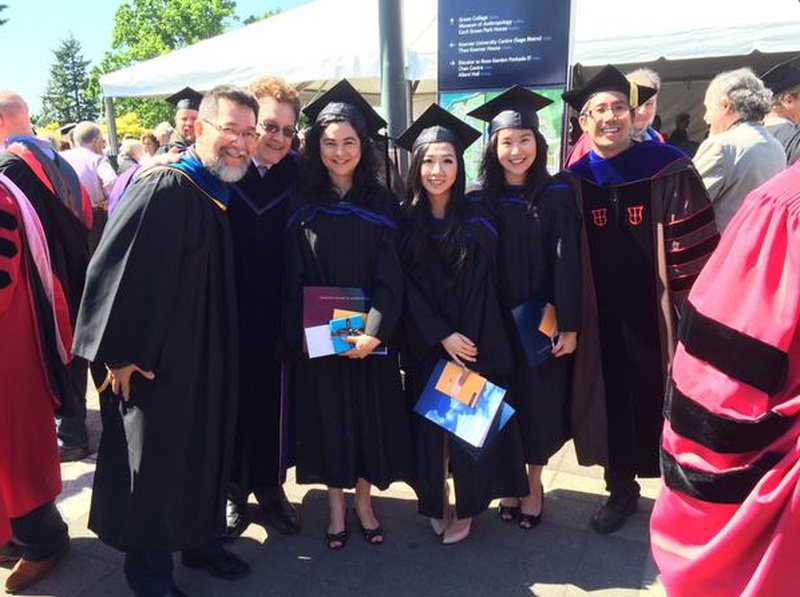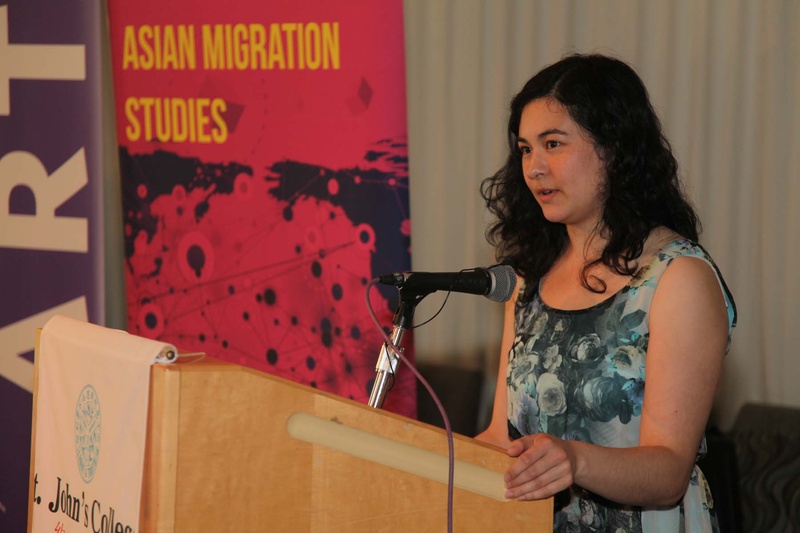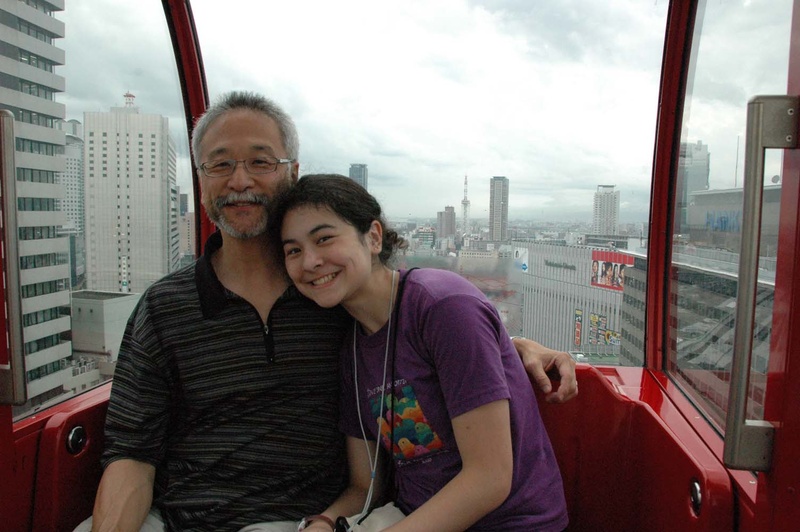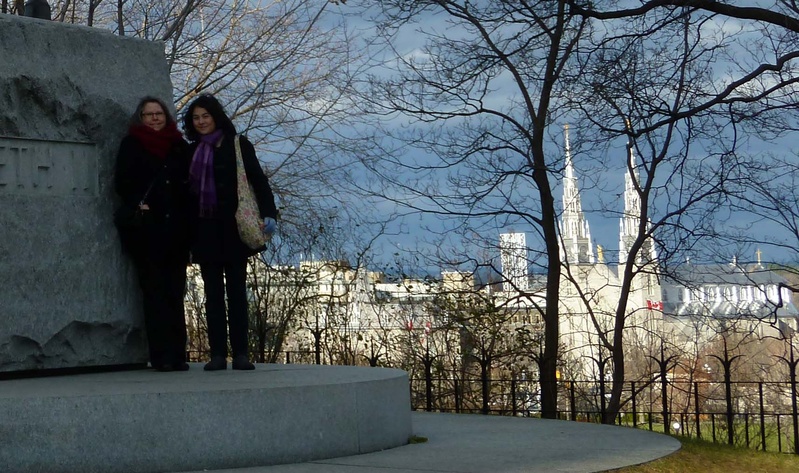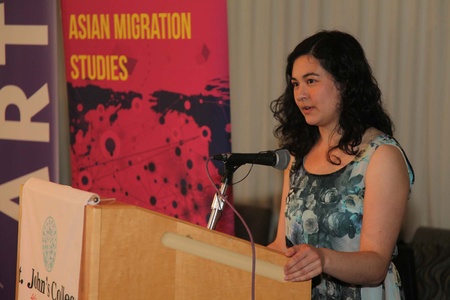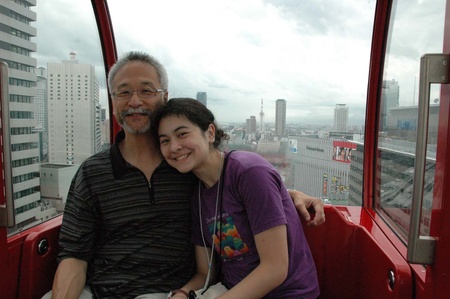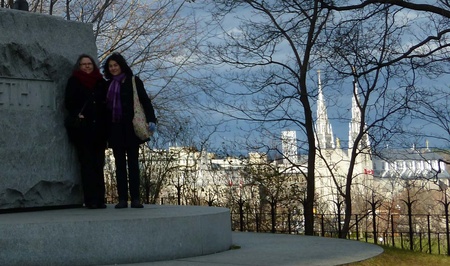When it comes to learning about ourselves as Canadian Nikkei there aren’t many places of higher learning (including our high schools) where one can study about JC history and engage in discussions about identity, etc.
While the curious in major centres where there are JC cultural centres do enjoy some advantages, the vast majority of others will largely need to rely on the internet to inform themselves.
What has mostly informed my own ethnic identity has substantially changed over the last 20 years. My “Nikkei” experiences as a youth mostly had to do with meeting with family and friends of my parents who happened to be of the same ethnic background. (I was fortunate to have grown up with some kids whose parents were working here from Japan.) Then, I lived and worked in Japan for nine years and returned to Ontario 10 years ago.
The bridge between the “Nikkeiness” of our parents’ and grandparents’ generations (mostly due to the anti-Japanese racism and World War Two internment experience that marred their entry into mainstream society) and younger generations who have largely been denied the opportunity to process that history and come to terms with it in their own way, has not been built yet. Some sections are there but others still need to be built..
While there are some pockets of dynamic Nikkei culture that are evident (e.g., Vancouver’s now iconic Powell Street Festival), it is all too often happening in isolated pockets with opportunities for all important synergies being missed.
EDUCATION IS THE KEY
In 2012, University of British Columbia (UBC), Arts Dean, Gage Averill, pledged to establish an educational program that will focus on the history and culture of Asian communities in Canada. Then, he made it so. It was an impressive accomplishment.
So, borne out of this is the nascent Asian Canadian and Asian Migration Studies (ACAM) program at UBC which just completed its first year in May. (Note: The program was created as part of UBCs tribute to the 76 Nikkei students it expelled in 1942 when the government’s internment campaign sent 22,000 Japanese Canadians into internment and POW camps in BC and Ontario.)
Amongst the program’s first graduating class that included Dominique Bautista, Nicole So and Elizabeth Cheong is Yonsei Carolyn Yukari Nakagawa of Vancouver, BC, a 2015 English Literature honours graduate, who has graciously agreed to share her family’s story and personal experience as a UBC student with DN readers here…
FAMILY TIES…
First of all, can you give me some background about yourself and your family, please? I understand that you are enrolled in the English program at UBC. Have you completed the program?
I graduated from UBC in May 2015 with a degree in Honours English and a minor in Asian Canadian and Asian Migration Studies - a bit of a mouthful, I know. I’m actually a second generation UBC graduate as both my parents also studied there. I grew up in Coquitlam, a suburb east of Vancouver - both my parents were born and raised in Vancouver.
My father, Bob, is a UBC alumnus who acted as an alumni representative in the ceremony that granted honourary degrees to the JC students expelled in 1942 as well as during ACAM’s ceremony for Dr. Sugiyama (honourary first student of ACAM).
Can you tell me a bit about him? What does he do?
My dad is trained as a pharmacist and is currently the registrar for the BC College of Pharmacists, the provincial licensing body for the profession. He keeps his licensing up to date, but he’s been on the regulation side of things for at least as long as I can remember, I think for most of his career. He maintains fairly close ties to the UBC Pharmacy faculty as an alumnus.
Can you tell me a little about your mother and siblings too?
My mother, Cathy, is of British Isles descent, her father having been born in England and her mother in Newfoundland before it joined Canadian confederation. But she definitely raised me with a strong consciousness of being Japanese Canadian. She was extremely close to my dad’s parents when they were alive, especially my grandmother, and learned from her how to cook Japanese food, which I grew up on. She was a full-time mom for a long time, but now she works at Lee Valley Tools, which she likes very much, since she’s very into gardening and woodwork.
How did she raise you with that strong consciousness?
Mostly through food! My mother learned to make pretty much all the Japanese dishes that my grandmother made, and we ate rice almost every day. She was also the one who would take me to the Buddhist church bazaars and the Powell Street Festival when I was growing up. I think she was also the first person to tell me about internment.
What about your family’s immigrant background? When did your family arrive in BC from Japan? Where did they settle? What stories have you heard?
My paternal grandmother, Tsuyako (Sue), was born in Steveston in 1920 and my paternal grandfather Toshio (Ken) Nakagawa immigrated when he was seventeen, but he was joining his parents and sisters here (there’s a story about him arriving and asking someone about where he could find the Nakagawa family - only to find out that the person he was asking was his sister). My grandmother’s family was involved in the fishing industry in Steveston as far back as her grandfather, although the family didn’t come over until later. Both my grandparents’ families came from Mio in Wakayama, a tiny fishing village nicknamed “Amerika-mura” because of the mass emigration of its residents to North America in the early parts of the 20th century - I think it was about a third of their population that left at a certain point. Someone told me that most of the JC community in Steveston was made up of families from Mio.
What was your family’s internment experience? After WW2, how did they make their way back to the BC coast? What did they do to get re-established there?
My family was not interned. This is the part of the story that was told to us most often. I should explain that I didn’t know my grandparents well - since they had my dad rather late (he’s much younger than his siblings), they were over seventy when I was born, and they both had significant memory issues which made it difficult to hold a conversation with them by the time I was in my teens.
But from what my dad, aunts, uncles, and cousins say, they were very reluctant to talk about it even when asked. My aunt finally got to interview my grandmother in 2005 with the excuse of their 60th wedding anniversary, and she made a “family book” for us with stories from everyone.
Here is what I know: they left the coast voluntarily, that is, before the official relocation orders were issued, because they saw the writing on the wall. My grandma’s father was able to sell his fishing boat himself. They worked on farms in the interior of BC, and that’s mostly where my grandfather courted my grandma. They got married in February of 1945 and, apparently, for their honeymoon they visited friends in different internment camps. They lived in the interior for the first years of their marriage, but I think they came back to Vancouver pretty much as soon as they could. They ran a number of small businesses - they had a dry cleaning place, then a grocery store, on Fraser St., which is where my dad gets his childhood memories from.
How difficult were those years?
They didn’t, as far as I can tell, ever complain about it. My dad says their attitude was that they didn’t have anything anyway, before the war, so not much was taken from them. Of course my great-grandfather had a boat, but they weren’t of the class of Nikkei that were going to UBC at the time or anything like that - so that’s the way they saw it. They just worked really, really hard to establish themselves in Vancouver and raise their family. It was just a given for them, that they had to work so hard. They never questioned it or complained in any way.
Is your dad a Sansei?
Yeah, I think Sansei is the best category for my dad, although technically my grandfather was an Issei so he’s “two and a half”.
What was his life like growing up in BC?
He was really popular in high school but I don’t think that means him and his siblings didn’t get called names. Like a lot of their generation, my dad and his siblings weren’t taught Japanese because my grandparents wanted to try to save them from discrimination. My aunt and uncles spoke it as babies, but my grandparents had stopped speaking it at home by the time my dad was born and his siblings all forgot what they used to know.
What about your mother’s story?
My mom’s family was very poor while she was growing up because she was the youngest of five children being raised by a single mother at a time when that would have been even more difficult than it would be now. Still, there wasn’t the sense for her that her family were immigrants - even though, as she’ll point out, my dad’s family is more Canadian since his mother was born in Canada and neither of her parents (technically) were.
When did your mom’s family get out to BC then?
I don’t know too many details about my mother’s father since he left the family when my mother was an infant, but my mother’s mother grew up in Toronto (her father got a job out there helping to build the Maple Leaf Gardens hockey arena), and moved to Vancouver when she got a job at UBC teaching biochemistry - this would have been in the late 40s or early 50s, before she was married. That’s what my mother says, anyway - one of these days I want to find out more about how a woman was hired to teach science at a university level in that time period!
How much of a sense of being of Japanese descent did you have growing up in BC?
Like I said, my mother always raised me to be very conscious (and proud) of being Japanese Canadian, but I didn’t really know what to do about it. People don’t know what to do with me - as a child, I got very tired of being asked if I was Chinese, but in adulthood, I’m more often told Latina, Filipina, Persian. Growing up I didn’t have much connection to the Japanese Canadian community, and most of my friends were either white, or Chinese - or Korean-Canadian. So I definitely had a sense of being different - both for being multiracial and for being of Japanese descent. Japanese culture was (and still is, I think) considered cool because of anime and so on so I think it gave me a bit of a boost, even though I didn’t know anything about that kind of thing or have any special connection to it. The history of internment never came up - the few visibly ethnic-Japanese people I went to school with were, I think, from families who had immigrated post-WWII and that seemed more “real” than whatever was going on with my family. My family just had the food. (But we DEFINITELY had the food.)
Do you think that there might have been advantages of growing up there as opposed to eastern Canada?
I grew up in Coquitlam, a suburb east of Vancouver where there was no Japanese Canadian community whatsoever - does that count as “eastern Canada”?
I’m kidding. We were still driving distance from Powell Street. We had access to Japanese groceries, and we went to bazaars at the Buddhist Church and the Powell Street Festival. Not that similar things wouldn’t have been available in Toronto, I think. But probably it makes more of a difference that I fit into the category of “Asian”, which is a larger segment of the population in Greater Vancouver than most other parts of Canada. I was more normal here than I would have been elsewhere. It also meant I had two potential identities to blend into - “Asian” and “white” - and I spent most of my time bouncing between them, whereas in a place with fewer Asians I might have just blended into a group of white peers and stayed there. So maybe I’m more self-conscious.
© 2015 Norm Ibuki


